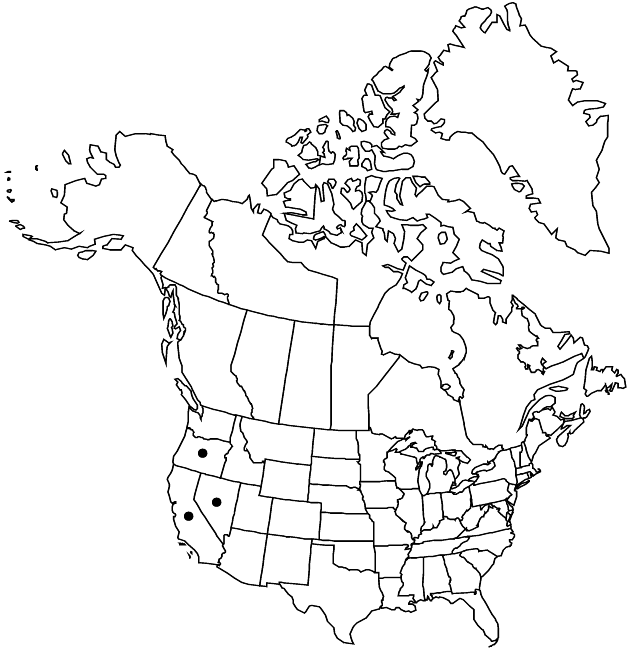Stephanomeria virgata
Bot. Voy. Sulphur, 32. 1844.
Annuals, 50–200 cm. Stems single, branches virgate, usually glabrous, rarely tomentose. Leaves withered at flowering; basal blades oblanceolate to spatulate, runcinate, 3–10 cm, margins pinnately lobed (faces usually glabrous, rarely tomentose); cauline much reduced, bractlike. Heads borne singly or clustered along branches. Peduncles 3–10 mm, bracteate. Calyculi of appressed or reflexed bractlets. Involucres 6–8 mm. Florets 5–9. Cypselae light tan to dark brown, 2.2–3.6 mm, faces smooth to tuberculate, not grooved; pappi (falling) of 23–28, white bristles, wholly plumose. 2n = 16.
Distribution

Calif., Nev., Oreg., nw Mexico.
Discussion
Subspecies 2 (2 in the flora).
The two subspecies of Stephanomeria virgata are often sympatric in southern California. Hybrids are found frequently.
Selected References
None.
Key
| 1 | Bractlets of calyculi reflexed; florets 8–9 | Stephanomeria virgata subsp. virgata |
| 1 | Bractlets of calyculi appressed; florets 5–6 | Stephanomeria virgata subsp. pleurocarpa |